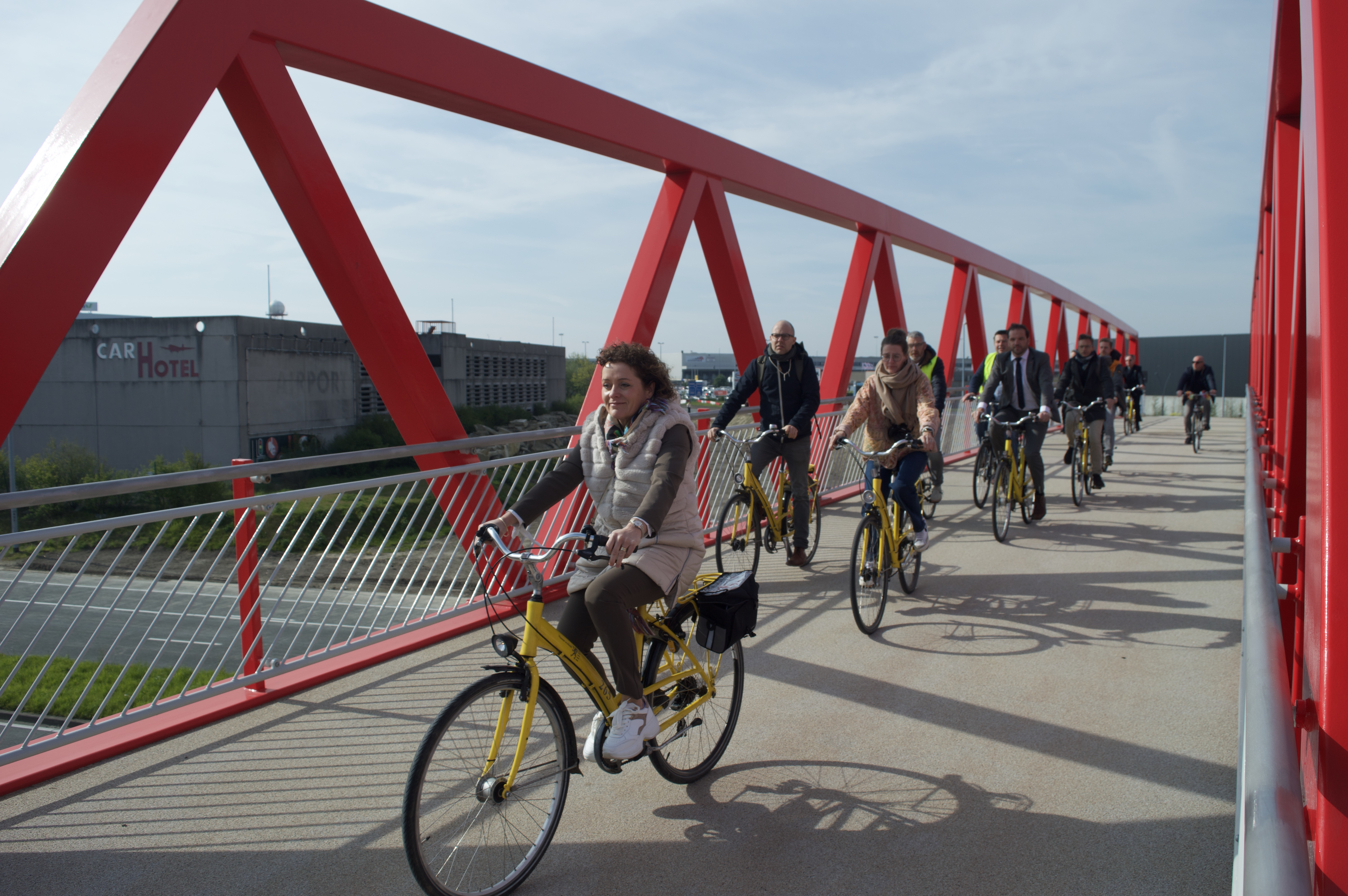
Bicycle bridge between Vilvoorde and Brucargo to encourage commuting

Flemish Minister of Mobility Lydia Peeters and others ride their yellow ‘Flemish government’ bikes during the officially opening of the new bicycle bridge over the Haachtsesteenweg (N21) at Brucargo, in Steenokkerzeel /Belga
A bicycle bridge over the Haachtsesteenweg (N21) has been inaugurated in the Flemish Brabant town of Steenokkerzeel. The bridge is part of t


Comments
Ready to join the conversation?
You must be an active subscriber to leave a comment.
Subscribe Today